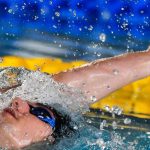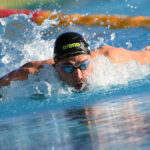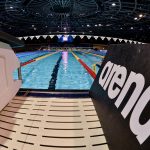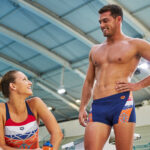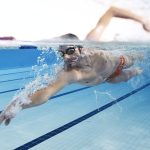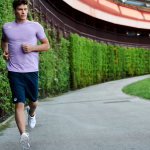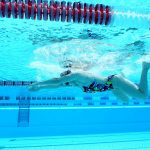Swimming and coeliac disease: 5 types of gluten-free foods that are full of energy!
Sport and coeliac disease: what are the right types of food for athletes who are gluten-intolerant?
Athletes suffering from coeliac disease often struggle to find types of food that can help provide the energy required for training. What are the right types of food for them?
Coeliac disease is an autoimmune disease that affects the small intestine causing it to become inflamed. The inflammation is caused by digesting gluten, i.e. a protein found in various types of cereal, such as wheat, barley and rye. Some people are gluten-sensitive or, in other words, they suffer from similar symptoms to people who have coeliac disease, for example stomach ache, headache or a swollen stomach, without having inflamed mucosa in the colon.
Food stores sell a vast array of products containing gluten. Not just the cereal-based foodstuffs mentioned above, such as pasta or bread, but also, for example, those containing only a small amount of flour for thickening purposes.
Gluten-free diet: what to eat before going to the gym
From a sports viewpoint, somebody who has recently discovered they suffer from coeliac disease might think they will struggle to store away enough energy for a training session, rather like a vegan worries about eating too much protein. This is because eating a standard bowl of pasta to provide your body with the sugar supply it requires is out of the question. You need to come up with some alternatives to make sure you are getting the right nutrition.
So here is a short list of types of food containing carbohydrates that are ideal for a gluten-free diet:
Rice
A gluten-free cereal that is an excellent source of carbohydrates. Shops also sell rice pasta, so that you do not have to miss out on a tasty bowl of pasta.
Fruit
Fructose, the type of sugar found in fruit, is an excellent source of carbohydrates that also contains plenty of vitamins and other extremely important micro-nutrients. Ideal for mid-morning or mid-afternoon snacks.
Quinoa
This can be eaten instead of rice and contains a healthy dose of protein.
Potatoes
Not to be seen as a vegetable, they contain starch that makes them rich in carbohydrates.
Legumes
beans, chickpeas, lentils… all excellent sources of carbohydrates, vitamins and, of course, protein.
Gluten-free diet: the importance of mineral salts
Omega-3 is an excellent ingredient in any gluten-free diet, because it helps reduce inflammation of the small intestine. It is found in abundance in fish, such as salmon, sardines, shellfish and tuna.
An athlete’s diet must include plenty of water and mineral salts. The latter can be taken before going to the gym, during training (according to the type of workout) and after training. Although mineral salts are recommended for everybody, athletes suffering from coeliac disease certainly cannot do without them.
For further information, consult a sports nutritionist, who will devise an eating plan tailored to your particular needs and a custom-designed gluten-free diet specially for you.
Written by:
arena coaches
Swim coaches, trainers and experts will give you all kinds of tips for performing at your best in both training and races.
